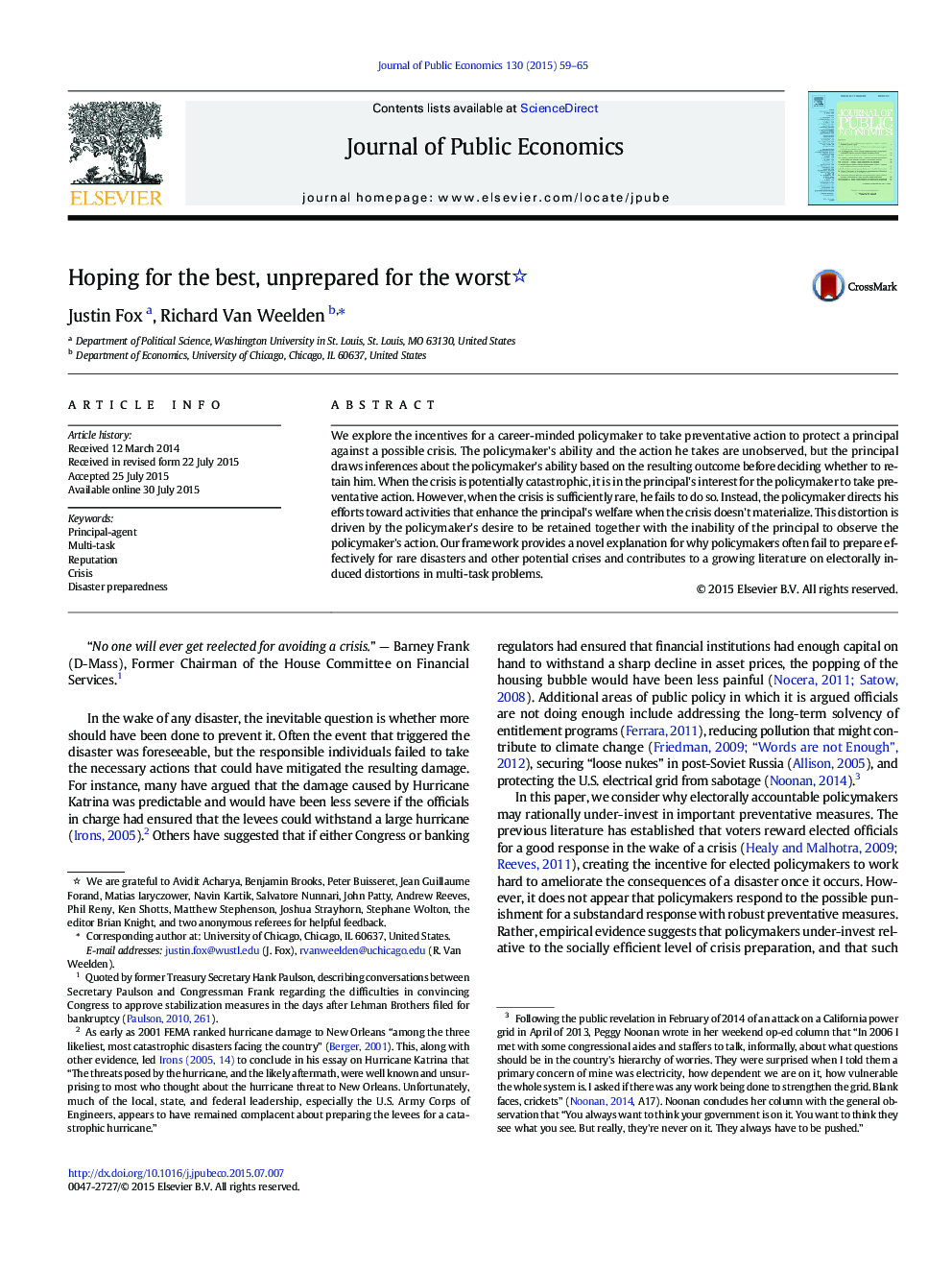| Article ID | Journal | Published Year | Pages | File Type |
|---|---|---|---|---|
| 968682 | Journal of Public Economics | 2015 | 7 Pages |
•We consider the multi-task problem of a career-minded policymaker who must decide how to allocate effort to prepare for different contingencies.•We show that the policymaker won’t prepare for any sufficiently rare state, regardless of the social benefits from doing so.•Due to policymaker incentives, the principal can be better off when the probability of an unambiguously bad state increases.•We discuss applications of our results, including an explanation for why policymakers may underprepare for rare disasters.
We explore the incentives for a career-minded policymaker to take preventative action to protect a principal against a possible crisis. The policymaker's ability and the action he takes are unobserved, but the principal draws inferences about the policymaker's ability based on the resulting outcome before deciding whether to retain him. When the crisis is potentially catastrophic, it is in the principal's interest for the policymaker to take preventative action. However, when the crisis is sufficiently rare, he fails to do so. Instead, the policymaker directs his efforts toward activities that enhance the principal's welfare when the crisis doesn't materialize. This distortion is driven by the policymaker's desire to be retained together with the inability of the principal to observe the policymaker's action. Our framework provides a novel explanation for why policymakers often fail to prepare effectively for rare disasters and other potential crises and contributes to a growing literature on electorally induced distortions in multi-task problems.
